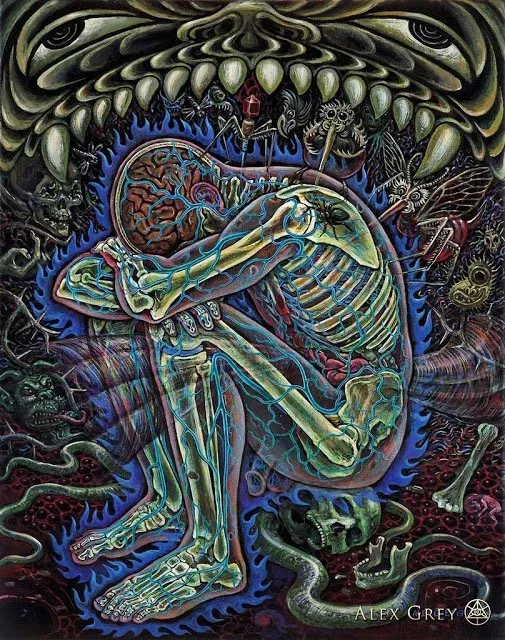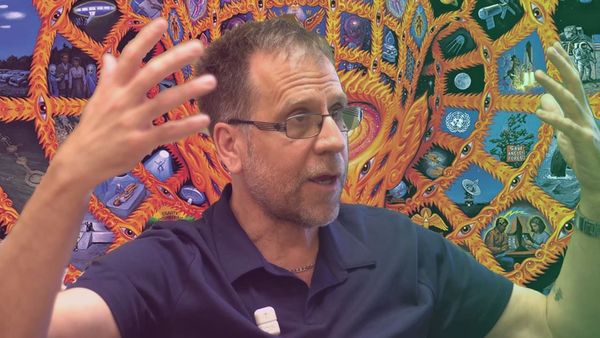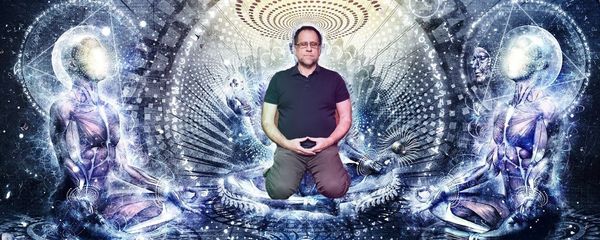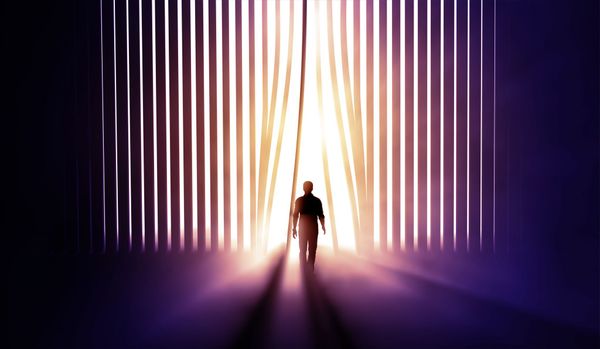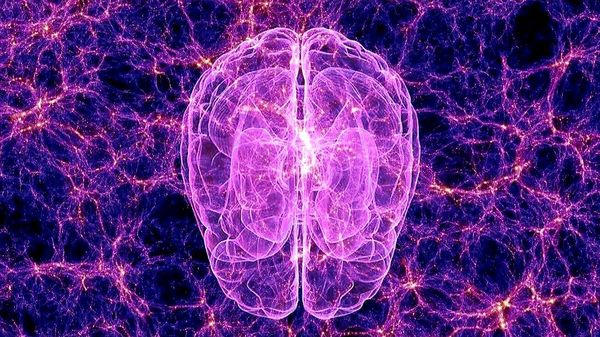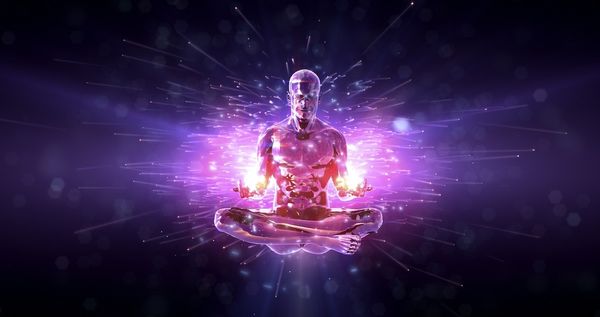Jordan Bates • • 15 min read
5 Secret Reasons Why Modern Life is Depressing
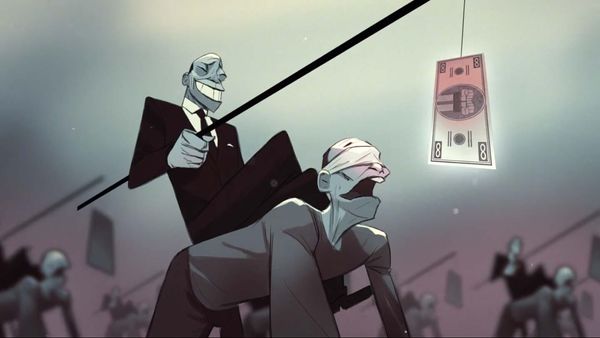
“About a third of my cases are suffering from no clinically definable neurosis, but from the senselessness and emptiness of their lives. This can be defined as the general neurosis of our times.”
― Carl Gustav Jung, 1875 – 1961
In many ways, the modern world is a magical place.
Rates of violence and poverty have never been lower in human history. Life expectancy has increased massively as infant mortality rates have plummeted. The average person has never had more access to education and opportunity. We’re in a golden age of art and music, with vast galaxies of creative output now instantly accessible to billions of people. Humanity’s library of knowledge is in everyone’s pocket. It’s never been easier to explore the world.
And yet, as with most everything we humans do or create, there are trade-offs.
The modern world is marvelous in myriad ways, yet many of us frequently find ourselves under significant duress, in a state of anxiety, agitation, alienation, depression, or cognitive overload.
Why is this?
With the emergence of many modern wonders, we’ve also witnessed the emergence of uniquely modern forms of suffering and psychological distress.
It’s important to gain an awareness of these uniquely modern pitfalls, in order to learn to neutralize them.
In this article, I’ll explore five covert sources of depression and angst in the modern world, as well as strategies for overcoming them.
My hope is to equip you with a roadmap that will allow you to navigate the labyrinth of modern life more skillfully—to avoid its hazards, harness its splendors, and find greater meaning and contentment.
Without further ado, let’s pull back the veil and take a look at the unsexy underbelly of life in 2018.

5 Uniquely Modern Sources of Psychological Suffering
1. We’re surrounded by supernormal vices with massive addictive potential.
In modern times, the world has become a never-ending series of supernormally addictive temptations.
Porn, video games, fast food, social media, (online) casinos, Tinder, designer drugs, consumer products, engineered super-cannabis, countless varieties of booze, Netflix, virtual reality, strip clubs, smartphones, cigarettes, the Internet, ubiquitous screens, cryptocurrency, constant new info streams, and so on and so forth.
It’s hard to overstate how weird and dangerous all this shit is.

Art by Antoine Geiger
Most of these things did not exist for the vast majority of human history—especially not in their current maximally enticing forms.
Make no mistake: It’s a minefield out there and only getting more seductive and all-consuming.
I’m genuinely concerned that we’re getting so good at creating addictive, attention-hijacking diversions that it will gradually become borderline impossible to avoid addictions to various forms of entertainment.
If the world is this addictive in 2018, what hope have we for 2038?
One might reasonably ask: Where are all these vices coming from, and why are they increasingly addictive?
In short: The attention economy.
We’ve reached a stage of capitalism in which an enormous war is raging—a war to capture your attention. Your attention is someone else’s paycheck.
It comes down to simple incentives: If companies want to stay in business and grow, they must progressively engineer better and better ways to hijack attention and ‘hook’ their users. If they don’t, someone else will.
This has resulted in the development of a laundry list of easily accessible, hyper-addictive modern vices.
And this is the environment through which we’re currently swimming in today’s affluent societies. It’s no wonder so many of us feel on edge, twitchy, dissatisfied, always on the lookout for the next hit of dopamine from our smartphone or elsewhere.
Strategies for overcoming this:
- Become aware of the power of today’s vices (congrats, you just did that!).
- Cultivate vigilance and self-discipline through meditation.
- Pay close attention to your compulsive behaviors and how they make you feel.
- Avoid situations in which you know you’re likely to over-indulge your vices.
- Undertake life experiments and challenges to build willpower and self-awareness, and to break toxic habits and replace them with healthy habits.
- Undertake social media fasts and periods of abstinence from all other vices.
- Optimize your environment to support a wise, healthy lifestyle.
- Hit the reset button by going on a retreat.
2. Modern urban lifestyles and environments are mechanized and deeply alienating.
Life in the city can be profoundly interesting and exciting, but it comes at a cost.
For the average person, a day of 21st-century urban life basically consists of moving through a concrete, mechanized maze of flashing neon signs, massive billboards, whooshing automobiles, police sirens, construction noises, car horns, and hundreds of disinterested smartphone-gazing people—more people than our hunter-gatherer ancestors would’ve seen in their entire lives.
The average human typically moves through this environment via car or public transport, commuting a couple hours per day to and from a job they dislike or hate to work for ~8 hours, returning at the end of the day to an enclosed rectangular box of a home or apartment where they’re cut off from most people in their lives. A typical evening might involve ‘connecting’ to people through a screen, binge-watching the latest viral Netflix series, or scrolling the bottomless depths of Twitter.
If the 21st century is characterized by a tsunami wave of supernormal stimuli, the modern metropolis is the epicenter. In these places there is often a pervasive, vague, eerie sense of falseness, artificiality.
Yet contemporary urban environments and lifestyles are so normalized that we don’t notice what they’re doing to us.

Swept up in a vortex of supernormal stimulation and distraction, we become disconnected from the visceral experience of the present moment; from our bodies; from silence and stillness; from ourselves.
Living relatively isolated lives in manmade environments, we become disconnected from each other, from community, and from the natural world.
Disconnected from ourselves, each other, and nature, we (unconsciously) search for anything to numb ourselves or feel a fleeting high—and as we’ve already seen, supernormal vices are eagerly waiting to ensnare us.
Strategies for overcoming this:
- Choose your career and living environment very deliberately.
- Consider not living in a city, or doing so only intermittently.
- Avoid long commutes and soul-sucking jobs.
- If you live in a city, get creative in finding ways to subvert its alienating effects:
- Take spontaneous aimless walks.
- Adopt a spiritual practice such as meditation or yoga.
- Find real communities (MeetUp and Couchsurfing can help with this).
- Try not to fall into a solitary, robotic routine.
- Get out of the city into nature regularly.
3. We’re bombarded by media and propaganda designed to short-circuit our better judgment.
Media and “journalism” in 2018 are almost entirely toxic. Maybe you’ve noticed.
Have you ever spent a bunch of time going down social-media rabbit holes or reading the latest outrage-inducing “news” stories, only to feel that you wished you’d spent that time differently?
Me too.
Media is one of the best examples of an industry whose integrity has been destroyed by the incentives built into capitalism.
In order to be profitable, social media and news sites require huge masses of people to look at the advertisements on their websites.
As a result, the top priority of these companies becomes maximizing 1) the number of eyeballs on their websites at any given time and 2) the number of hours every pair of eyeballs spends looking at their websites. Again, attention economy.

Art by Antoine Geiger
Taking a step back, we can plainly see that it would be ideal to have social networks whose top priority was facilitating real human community and social life according to widely shared values.
Unfortunately, though, prioritizing in this way is not a good strategy for maximizing advertising revenue.
So, instead, you get a situation in which thousands of engineers are working behind the scenes at Facebook, Twitter, Instagram, Snapchat, YouTube, etc., constantly trying to find ways to make these sites more addictive and attention-hijacking.
Constant push notifications. Autoplay videos. Algorithms designed to show you more of the content you spend the most time on, even if it’s informational junk food. Notifications about things you don’t really need to be notified about. Variable rewards—unpredictable positive feedback that hooks us in the same way slot machines do.
The ironic result of these profit-driving tactics is that “social” networks have pushed us into isolation, spending countless hours scrolling feeds, wondering why we feel vaguely depressed.
Similarly, we can see that it would be ideal to have news outlets whose top priority was providing honest, unbiased, non-sensationalized, high-quality information.
Again, though, this is not a good strategy for maximizing ad dollars.
Unfortunately, to maximize traffic, news companies have learned that it’s best to be polarizing, controversial, emotionally intense, and sensational. Clickbait titles that distort the truth are used to trigger our limbic system—our primal anger/fear response—causing us to click, read agitatedly, and get embroiled in flame wars in the comments.
And when Facebook’s algorithms notice us spending a lot of time reading and commenting on political infotainment and the like, they show us more of the same, leading to a toxic cycle. In this way, the “news” and social media have formed an unholy alliance driven by profit incentives.
The result of this alliance, for vast herds of unsavvy users, is living life in a near-constant state of dissatisfaction and agitation, itching to pick up the smartphone to find out how the “idiot libtards” or “alt-right fascists” are ruining the country today. Much of this drama and outrage is simply manufactured.
Strategies for overcoming this:
- Realize the world of media is largely toxic.
- Start being extremely deliberate about your media and information diet.
- Dramatically limit time on social media.
- Take social media fasts.
- Select your sources of information very carefully, prioritizing great books and high-integrity websites/blogs.
- Stop following most, if not all, “news” sources.
- Adopt the attitude that if something is sufficiently important, you’ll hear about it (because in this absurdly interconnected age, you will).
- Learn about political tribalism to stop getting jerked around by polarizing political infotainment.
4. Globalization and the Internet give us access to a never-ending news stream of cherry-picked tragedies of Earth.
Paradox: Though much of the daily political-news drama is manufactured bullshit, it’s also the case that we are awash in vivid news of very real tragedies taking place throughout the world.
In a digitally interconnected world of 7 billion humans, this makes sense.
Think about it: 7,000,000,00 people. 7,000 x 1,000 x 1,000 individuals covering every corner of a vast globe. Of course, a percentage of those people are going to have really shitty things happen to them on any given day.
If one wanted to, one could create a kind of 24/7 highlight lowlight reel of all of the shittiest things that happened in the world today.
And that’s more or less what international news broadcasts—and sites like Twitter, to some extent—have become.
To the credit of those who broadcast these stories, it’s perfectly understandable to want to spread the word about awful things that are happening—to raise awareness, seek help, etc.
The problem is that we didn’t evolve to process this much tragedy—not even close.
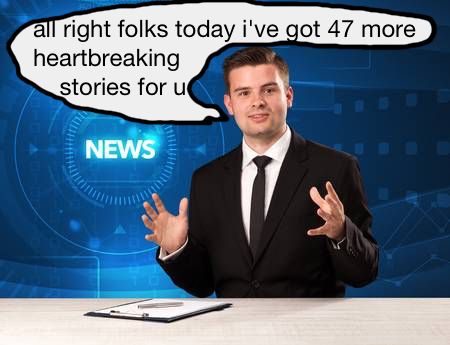
Our brains evolved to conceptualize and care for approximately 150 people (Dunbar’s number).
Gaining awareness of the tragedies afflicting 7,000,000 people, therefore, feels like learning that an apocalypse is occurring.
It’s utterly overwhelming and leads many people to fall into a pit of despair. It gives us the distorted impression that the world is on fire and rapidly going to shit.
Interestingly, when you look at long-term trends, you find that in many ways the opposite is true: As I mentioned in the introduction, rates of violence and poverty have never been lower. Life expectancy has increased massively as infant mortality rates have plummeted. The average person has never had more access to education and opportunity.
Unfortunately, we’re rarely shown this other side of the coin. You never see a news headline that reads, “6 Billion People Continue Living Lives of Relative Peace and Prosperity.”
(Interestingly, we’re also rarely told about many of the largest issues faced by our species: global extreme poverty, ecocide, mass-scale animal cruelty, and extinction-level risks posed by things like nuclear war, runaway climate change, replicator technology weapons, artificial intelligence, etc.)
In sum, as a result of over-attention to Earth’s daily tragedies, many souls are crushed by a sense of depression, guilt, and helplessness.
Strategies for overcoming this:
- Again, stop following most or all news sources. You’ll notice that even when you don’t follow the news, you’ll still hear about the most significant events that happen, and this will already be more than enough tragedy to process.
- Realize it is unwise and not useful for you to overload yourself with stories of tragic events—this only debilitates you.
- Purify your info diet; curate sources of consistently high-quality information.
- Counterbalance your awareness of contemporary horrors by reading about contemporary progress.
5. The world has been disenchanted; we’re disconnected from the magic of Nature and the spiritual dimension of the human experience.
Earlier I discussed the way in which we’ve become disconnected from the natural world, but the problem goes much deeper than simply not spending enough time in the woods.
For much of human history, in diverse cultures worldwide, life was viewed as sacred. Family was sacred. Community was sacred. Meals were sacred. Water was sacred. Homes and everyday objects were sacred. Nature, along with all the gifts it provided, was sacred.
Life moved much more slowly and was a much quieter affair, allowing people to be deeply in touch with the sounds, seasons, rhythms, and therapeutic beauty of nature’s processes of growth and decay. People lived close to the land, and the aliveness of nature and everything in it was an ever-present, immersive reality. There was magic in nature—in the mysterious forces that animated the macaws and orchids, jaguars and sequoias, the cumulonimbus clouds rolling over the mountains.
Around the late 18th century, with the rise of capitalism and industrialization, various prescient poets and sages began to observe that something essential was being lost as people embraced the hustle-and-bustle of the times and the promise of an emerging techno-paradise.
The disenchantment of nature likely began much earlier in (pre)history, as humans discovered agriculture, erected cities, and began to lose touch with their animistic indigenous roots. Capitalist industrialization—and its commodification of nearly all areas of life—was, however, a particularly devastating blow to the remaining vestiges of the human soul. Furthermore, modern secular-scientific orthodoxy often implies that the universe is a cold, mostly dead and unthinking machine, born of a random accident; this unproven hypothesis further contributes to widespread spiritual confusion and despair.

I love science, but I don’t love it when people act like this statement is more than an unproven hypothesis
“God is dead,” Nietzsche wrote, referring not to the demise of a deity but rather to the death of God in the hearts of Western people—to the disenchantment of the world.
Imagine a life in which you view everything—from the air you breathe to the food you eat—as a sacred gift, and you frequently thank Nature for generously providing. Imagine spending much of your time in silence, close to the wild land, listening to the sounds of the wind and birds, watching the clouds drift across the sky. Imagine feeling that everything around you was a divine miracle. Imagine being embedded in loving tight-knit communities of people who felt the same way and relied on one another.
This is what it was like to be human for much of our history. When you compare this vision of life with that of the modern age, it’s easy to see how far we’ve drifted from our roots.
I don’t want to over-romanticize the past here, as it really is the case that we’ve seen many monumental forms of progress in the past few centuries. Our lives, on the whole, are less violent, more prosperous, more filled with novelty, and more comfortable than those of most of our predecessors.
Yet, we’ve also lost things in the process of modernization, and we shouldn’t kid ourselves about that.
Through deep intention and deliberate practice, it’s possible to reawaken the spiritual dimension of the human experience—to re-enchant the world—and it’s heartening to see more and more people coming to the realization of the importance of this pursuit.
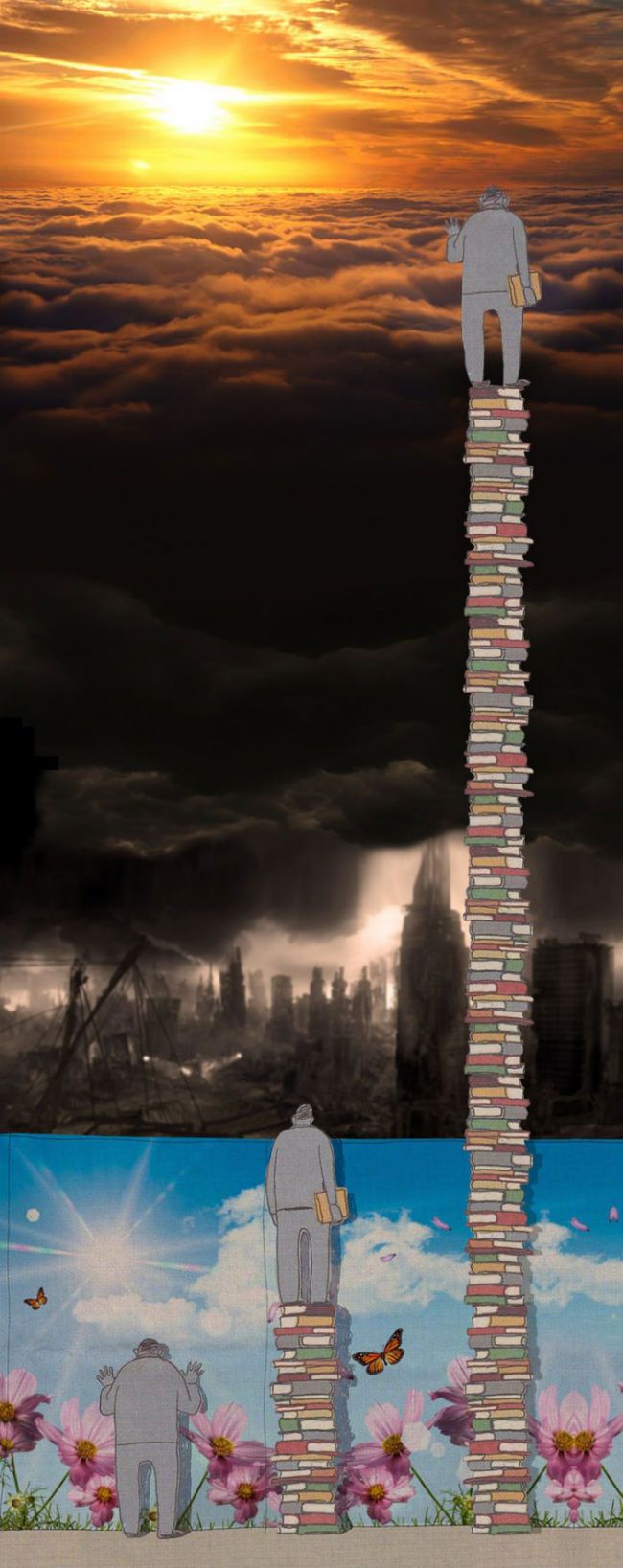
Nonetheless, though, it remains the case that on the whole we moderners are profoundly spiritually disconnected, and it is this disconnection that is among the most painful afflictions widespread in our psyches today.
Strategies for overcoming this:
- Experiment with spiritual practices such as nature-immersion, meditation, yoga, breathwork, plant medicine work, gratitude journaling, or mindfulness.
- Learn about shamanism.
- Read and listen to Alan Watts, Terence McKenna, and other spiritual teachers.
- Undertake our spiritual obstacle course or attend one of our Apotheosis retreats.
- Above all, recognize the importance of cultivating some form of (secular) spirituality, the most fundamental form of which simply involves awakening gratitude, connectedness, and a sense of poetic wonder at the majesty of nature.
Bonus: Our culture of consumerism and money-worship convinces us to live in unfulfilling ways.
“It did what all ads are supposed to do: create an anxiety relievable by purchase.”
— David Foster Wallace
Finally, it’s worth mentioning that the entire simulacrum of modern advertising is laced with insidious subtextual messaging designed to convince us that we’re deficient in some way, but that we can ‘fix’ ourselves for just seven payments of $99.95!
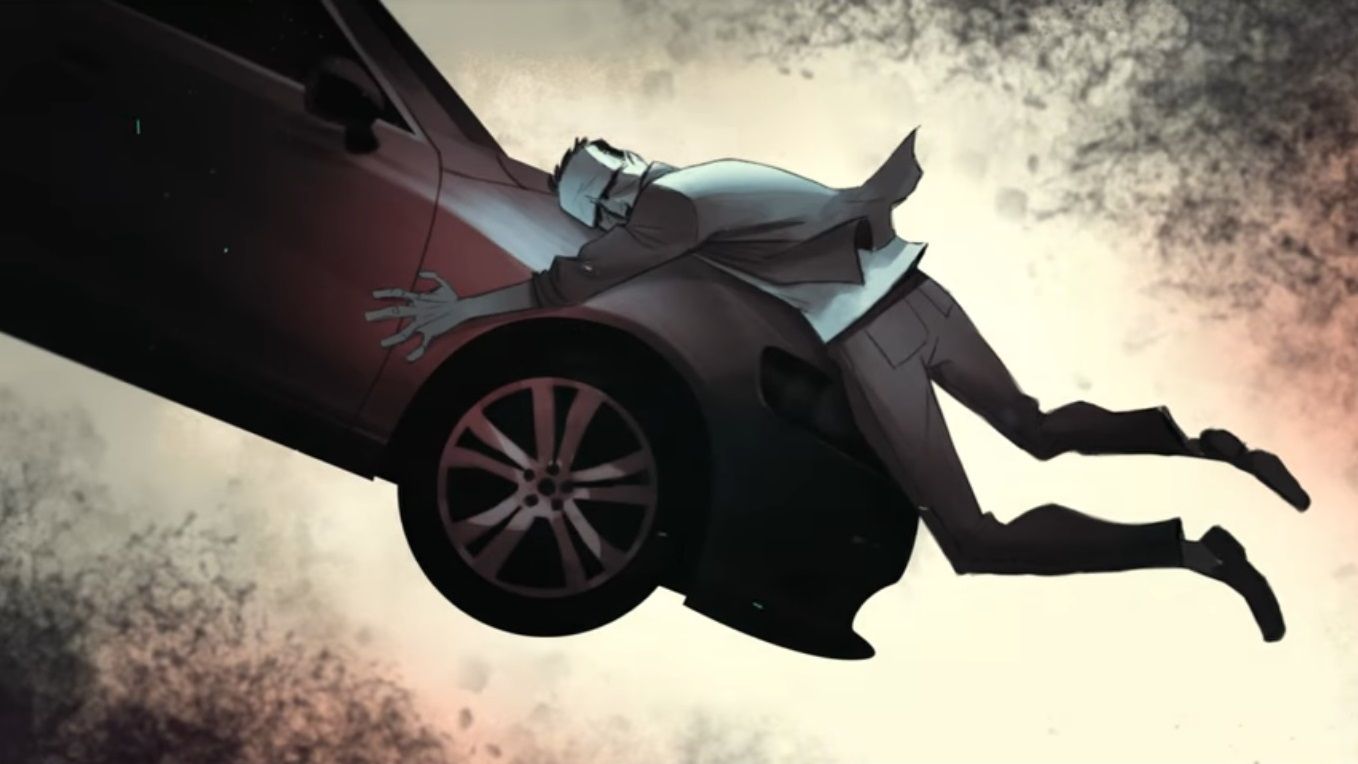
Furthermore, our dominant culture narrative (baked into much of our media) urges us to spend our lives doing shit we don’t like in order to buy the things we’re told will finally make us “successful” and “happy.”
We’re constantly shown images of people with more than us, conditioning us to perpetually pine for a higher standard of living, rather than appreciate what we already have. So we work our lives away in order to buy more and more things, most of which end up being unnecessary and unhelpful clutter.
“It is not the man who has too little that is poor, but the one who hankers after more.”
— Seneca
Money-earning is useful insofar as it provides us a reasonable level of security and comfort, but beyond that, it’s usually a corrosive distraction. If money is at the top of your hierarchy of values, you’ll spend your life fixated on accumulating more of it at the expense of life’s deeper treasures, but it will never be enough. David Foster Wallace knew this:
“If you worship money and things, if they are where you tap real meaning in life, then you will never have enough, never feel you have enough.”
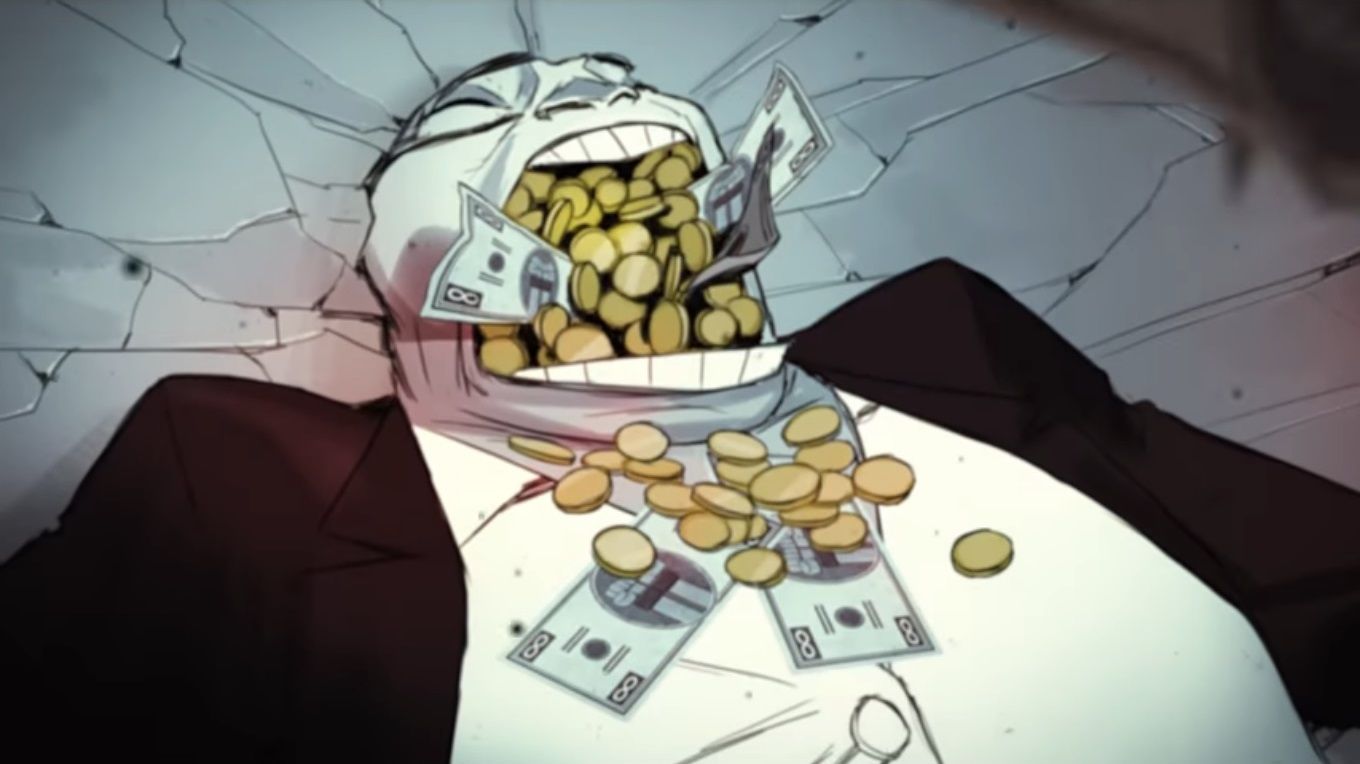
Strategies for overcoming this:
- Realize that no amount of money-earning and consumption can ever bring true peace and fulfillment; these emerge from deep self-awareness and acceptance, self-loving habits, cultivating a connection with the Vast, being a person of integrity, and pursuing genuinely useful and intrinsically enjoyable activities.
- Don’t let money occupy the top of your hierarchy of values.
- See endless consumption as the trap that it is.
- Follow your bliss.
- Become minimalist.
- Ignore/block most advertisements.
- Optimize for meaningful work and experiences over accumulating money, status, and things.
Conclusion: The Good News
So I’ve now mapped out six uniquely modern sources of psychological distress. Let’s review:
1. We’re surrounded by supernormal vices with massive addictive potential.
2. Modern urban lifestyles and environments are mechanized and deeply alienating.
3. We’re bombarded by media and propaganda designed to short-circuit our better judgment.
4. Globalization and the Internet give us access to a never-ending news stream of cherry-picked tragedies of Earth
5. The world has been disenchanted; we’re disconnected from the magic of Nature and the spiritual dimension of the human experience.
6. Our culture of consumerism and money-worship convinces us to live in unfulfilling ways.
Hopefully, this list has helped you to better understand our situation in the modern world and equipped you with an increased capacity to skillfully navigate life in 2018.
Though these items are fairly shitty, it’s important to remember the good news: The 21st century is also a time of immense opportunity and possibility. In many ways we live in an astonishing Golden Age offering levels of novelty and prosperity never before seen in human history. There are endless things to celebrate, appreciate, learn, and explore. Limitless potential to grow and evolve in beautiful ways, individually and collectively.
If we can be kind to ourselves and develop the wisdom to avoid the peculiar pitfalls of modern life, our time on Earth can be tremendously meaningful and worthwhile.
Thank you for reflecting on these words. I truly hope they’ve given you something of value. Take care and good luck!
———
Follow Jordan Bates on Facebook and Twitter.
If you appreciated this, I highly recommend ‘IN-SHADOW,’ a genius short film on the dark side of modern life.

Jordan Bates
Jordan Bates is a lover of God, father, leadership coach, heart healer, writer, artist, and long-time co-creator of HighExistence. — www.jordanbates.life



